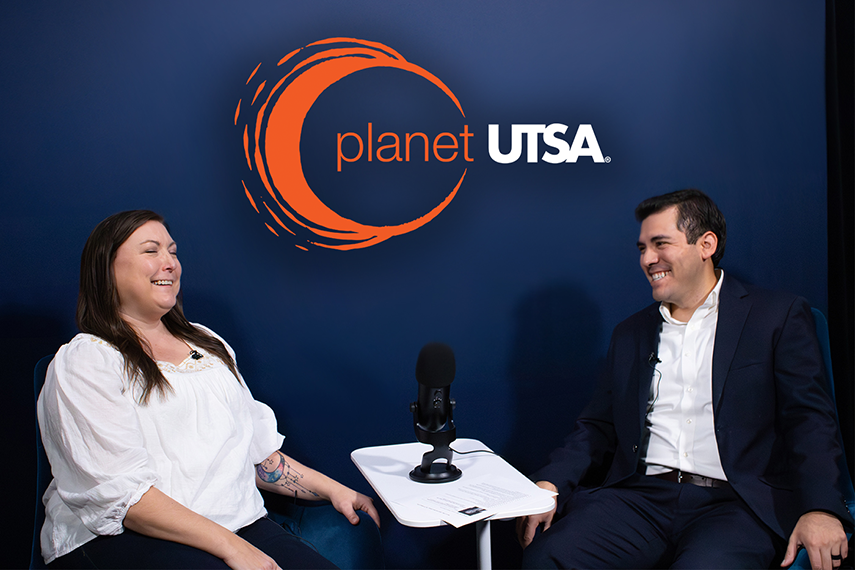
 LightSound devices convert light into sound to make eclipses more accessible.
LightSound devices convert light into sound to make eclipses more accessible.When the moon takes its place between Earth and the sun, completely blocking the sun’s face, a total solar eclipse will be visible in certain spots of North America on Monday, April 8. UTSA students and faculty members are working on LightSound devices, sonification tools that convert light into sound to make solar eclipses more accessible. Their hope is that people with no vision and low vision will be able to enjoy this incredible event.
Joining us in the podcast studio this week is Lindsay Fuller, UTSA eclipse project manager and a lecturer in the UTSA Department of Physics and Astronomy. Fuller chats with UTSA’s John Elizondo about The LightSound Project and shares how LightSound devices apply sounds to the intensity of light as the moon slowly covers the sun.
The UTSA Office of University Strategic Communications demonstrates UTSA’s commitment to research, career readiness and economic development through compelling, multimedia storytelling. Its Planet UTSA podcast is one of several projects in the Eclipse 2024 initiative, which will include a UTSA Today news series about the impact of the eclipse and a weekly op-ed series featuring faculty experts running in the San Antonio Express-News leading up to the April 8 event. Both series will run on Mondays. Check out Sombrilla Magazine to learn more about how UTSA has emerged at the forefront of illuminating projects solving the grand challenges of space exploration.
UTSA Today is produced by University Communications and Marketing, the official news source of The University of Texas at San Antonio. Send your feedback to news@utsa.edu. Keep up-to-date on UTSA news by visiting UTSA Today. Connect with UTSA online at Facebook, Twitter, Youtube and Instagram.
The University of Texas at San Antonio is dedicated to the advancement of knowledge through research and discovery, teaching and learning, community engagement and public service. As an institution of access and excellence, UTSA embraces multicultural traditions and serves as a center for intellectual and creative resources as well as a catalyst for socioeconomic development and the commercialization of intellectual property - for Texas, the nation and the world.
To be a premier public research university, providing access to educational excellence and preparing citizen leaders for the global environment.
We encourage an environment of dialogue and discovery, where integrity, excellence, respect, collaboration and innovation are fostered.